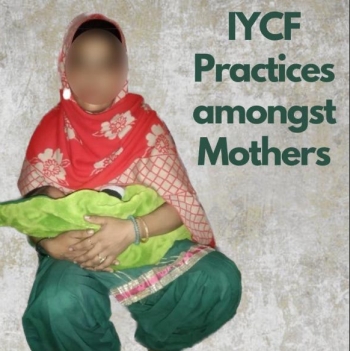Infant and Young Child Feeding (IYCF) practices amongst mothers in Hospitals of Mohali district (Punjab, India)
Abstract
India has achieved significant improvement since 2000, yet there are still areas of alarm, notably with regard to child nutrition. Adequate nutrition during infancy and early childhood is critical to each child’s development of his or her full human potential. The period from birth to two years of age is widely acknowledged as a “critical window” for promoting optimal growth, health, and behavioral development. The present study was conducted on 500 mothers of infant and young children (0-24 months) visiting OPDs of government and private hospitals of district Mohali. The respondents were interviewed using a questionnaire provided by WHO (WHO, 2021). It was found that only a few mothers (n=20) practiced hand expression of breast milk irrespective of the type of hospital visiting. A majority gave pre-lacteal food among those visiting both the private and government hospitals. 89.4 percent (n=447) had ever breastfed their infants while a majority visiting government (52.1%) as well as private (53.3%) hospitals practiced exclusive breastfeeding. Reasons for stopping breastfeeding included medical advice, family advise, perceived decreased milk production or birth of another child. IYCF practices were found to be similar amongst mothers visiting the government and private hospitals. Therefore, breastfeeding counselling at antenatal clinics and peer support for exclusive breast feeding as per WHO recommendations should be included as part of breast-feeding promotional programs both in private as well as government hospitals, dispensaries and clinics.

Authors retain all copyrights. In making a submission to World Nutrition, they are certifying that all material is theirs except quotations, as indicated, and that they have obtained permission for any photos, tables, or graphics taken from other publications or websites.




